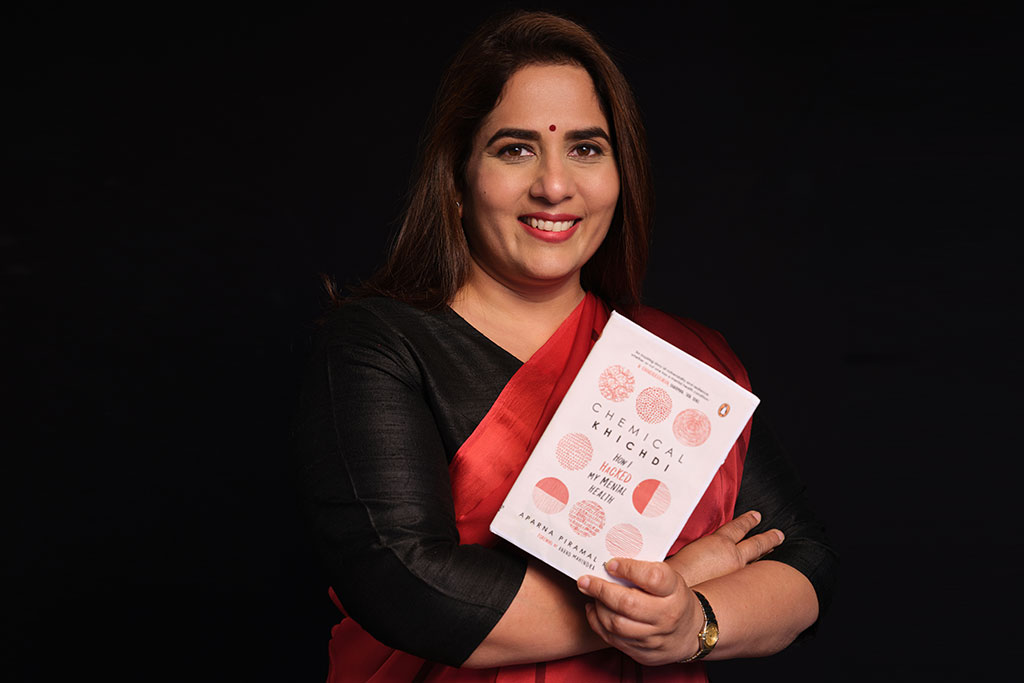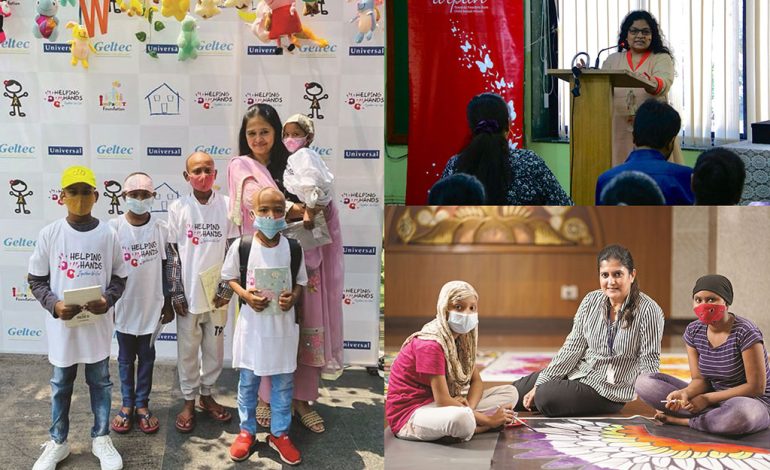
Dealing With Demons
What I wish I knew about mental health in my 20s…
From the outside, my life seemed ideal. I was born into an affluent business family, I studied at the JB Petit High School in Mumbai, at Oxford University and at Harvard Business School. I became a CEO of one of my family’s businesses in my mid-twenties, got married before I turned 30, had two happy, healthy children by the age of 35, started writing newspaper columns, and published my first book before I turned 40, followed by a bestseller in my mid-40s. Sounds great, doesn’t it?
But we all have hidden vulnerabilities. Mine is bipolarity, a serious mental illness that first surfaced when I was 24, and has since then been a constant companion. It takes me very high, in a phase called mania and hypomania, where I lose sleep, have tremendous energy, lots of racing thoughts and am extremely restless. This can go on for days and weeks, until I eventually crash into depression, feeling sad, hopeless, and full of despair. Then I need to recover and resume my routine. In between these mood swings there are extended phases when I am ‘normal’; in control of my thoughts, although there are daily ups and downs. For my family, managing mania is painful and challenging. For me, depression is very hard, and regular mood swings also need care and attention. I experienced some major mood swings in my 20s, several in my 30s, and have been much more stable in my 40s, with no incidents of mania in the last four years.
Bipolarity is one of the reasons why I left the family business and found a new career in freelance writing—my family didn’t feel I could handle the stress of being a CEO. It is one of the reasons I have gained weight, a most disheartening struggle. But it is also a source of a lot of illumination over these last two decades. It has given me incredible insights that I wish I knew in my 20s. That is often when mental health conditions surface as we transition to adulthood, and face life with all its stresses and demands. Living with my condition has enabled me to understand its stress-related triggers. I want to share the most important ones, in the hope that I can help someone else to short-cut this journey for themselves. My challenges were not financial, or about daily survival. They were emotional and psychological and lay in three major areas: in learning how to avoid comparisons, in carving one’s identity, and finding my life’s purpose. It took years of self-examination, self-acceptance and self-understanding to come to these insights. I am still a work-in-progress, but I am in a much better place than earlier.

Comparisons and yoga mats
My biggest mistake was a common one: comparing myself to others, judging myself, and never feeling good enough. One would think that an Oxford and Harvard graduate would be super-confident about herself! In fact, not feeling good enough pervaded every cell of my brain because I didn’t feel that my achievements were ever ‘enough’, compared to my high-achieving peers. I didn’t need social media to be tough on myself, I did it anyway. In a journal entry from a few years ago I wrote: “What was making me feel down …was a nagging sense of insecurity or inadequacy of not being successful enough, not talented enough, not clever enough, not clued in enough, not hardworking enough …the easiest thing I can say to myself: I am not good enough.”
Daily affirmations, prescribed to me by my counsellor, helped me to overcome this void. She asked me to write down a few affirmations, including this one below, and say them to myself every day: May I accept and choose myself the way I am, because I am good enough. A conversation with a close friend also helped. Look at your own yoga mat, don’t get distracted by the perceived harmony in someone else’s mat, she said. It was a good metaphor. Yoga is a solo practice, using one’s own body weight. Everyone improves at their own pace. I realised I need to find the balance of movement and stillness, the acceptance of both alignment and friction, in myself. So lesson #1: Stand on your own yoga mat, avoid comparisons.

Raje addressing an audience
Identity and scorecards
One of the reasons I was so haunted by a feeling of not being good enough is because I was fixated with professional success. I grew up thinking that personal identity—and personal happiness—lay entirely in professional success, which I equated to being a wealthy entrepreneur or a businessperson. All my markers of success were based on an external scorecard, such as academic achievements or becoming a CEO at a young age. Being a mother or a wife felt less ‘important’. So when I faced professional failure and was asked to leave the family business, I was crushed. I had to reconstruct my entire sense of identity, and I started looking inwards. I realised that I wore many meaningful labels —mother, wife, daughter, sister, friend—beyond my professional avatar and also came to embrace my essence: a creative thinker who likes connecting the dots between diverse ideas and disciplines. The girl who wore yellow sunglasses at the HBS campus, and purple corduroy trousers in college. The woman who is optimistic, warm, friendly, fun and caring. The needle on my scorecard was becoming internal, and I was happier. Now, happiness was success; professional success was not happiness. So lesson #2: Develop internal, not external scorecards.
Find your purpose
The third part of my journey lay in finding a sense of purpose. Many of us inherit goals from our parents, our schools or our social conditioning. Once I began to look inwards, at my own yoga mat, and at my internal scorecard, a deeper sense of purpose awakened. “Purpose is the reason you journey. Passion is the fire that lights the way,” I was told by a spiritual guru. For me, purpose lay in creativity, in writing, in making a dent in the universe around me, however small. As I wrote in my journal towards the end of 2016: “It’s apparent that I’m doing a number of things: interviewing and writing, speaking and presenting, researching books, co-hosting a book club, fundraising, travel and of course, kids and family. This is my life and I love it”. So lesson #3: Discover your life’s purpose, however long the journey might take.
I wish I knew in my 20s how important it was to have a healthy relationship with myself. I started journaling on a regular basis when I was 35, and found that it led to a meaningful conversation with myself. When I go back and look at my journals, I can see how much I’ve evolved over a decade, and wish I’d started a decade earlier. Even if you don’t like writing, I hope you can find another way to have a conversation with yourself. Thank you for being part of my journey, and I wish you all the best on yours.










